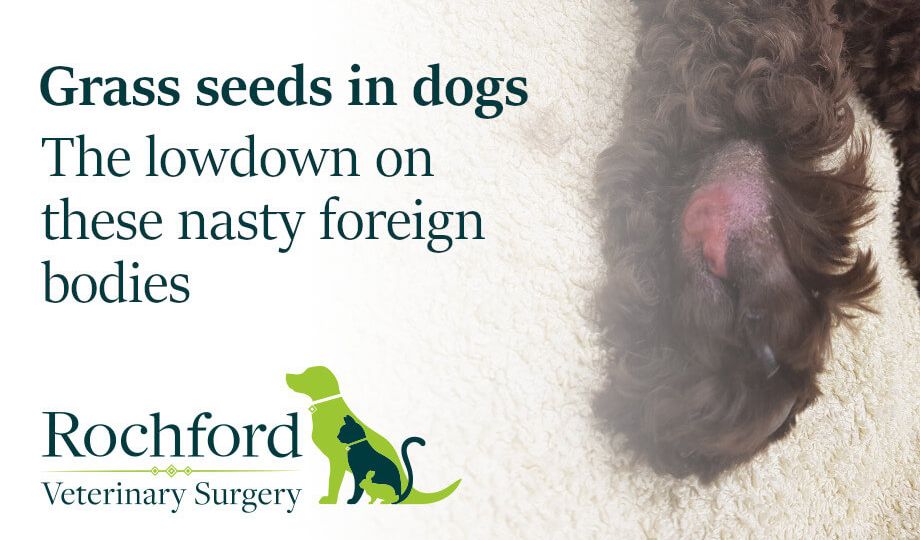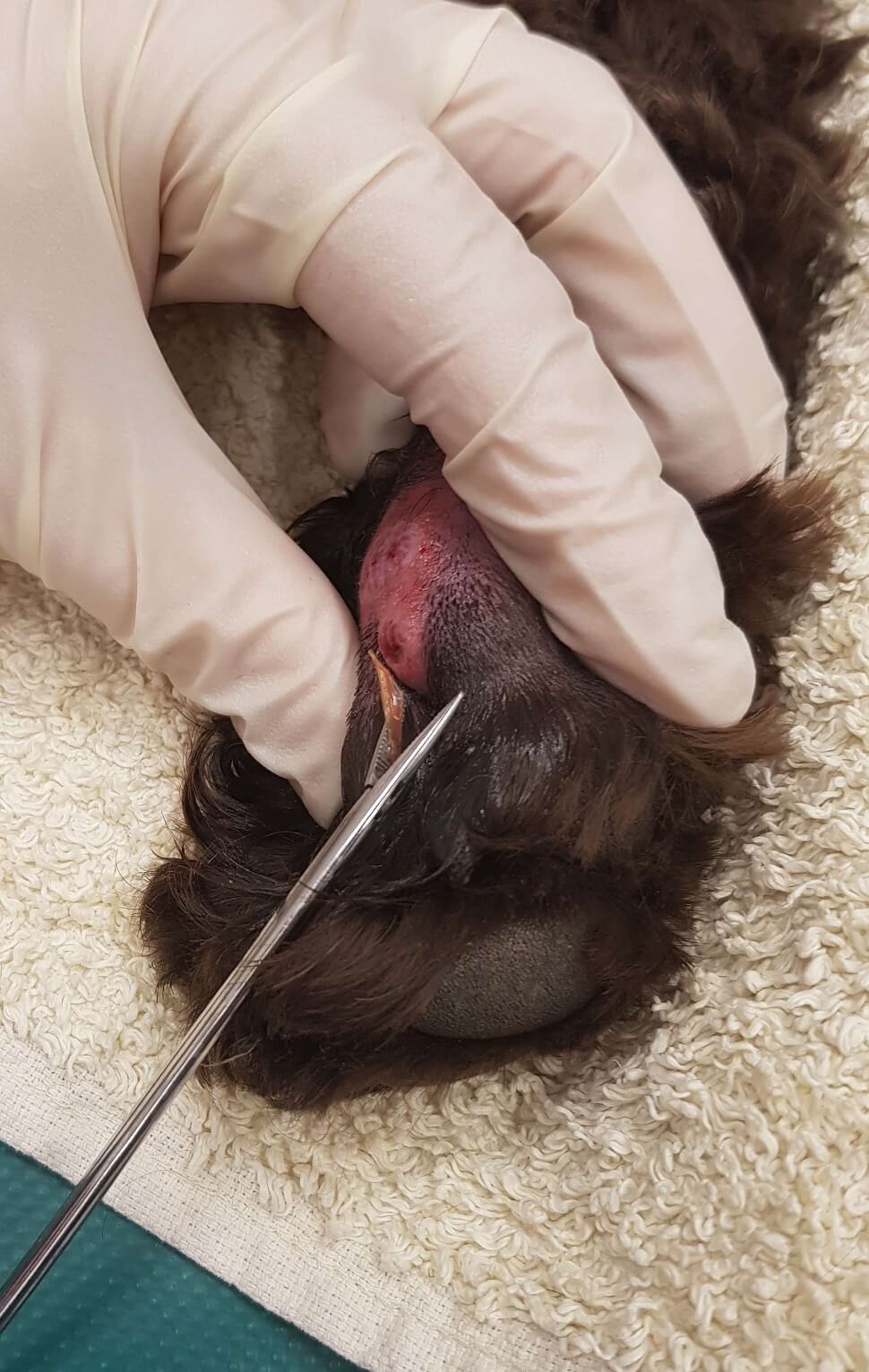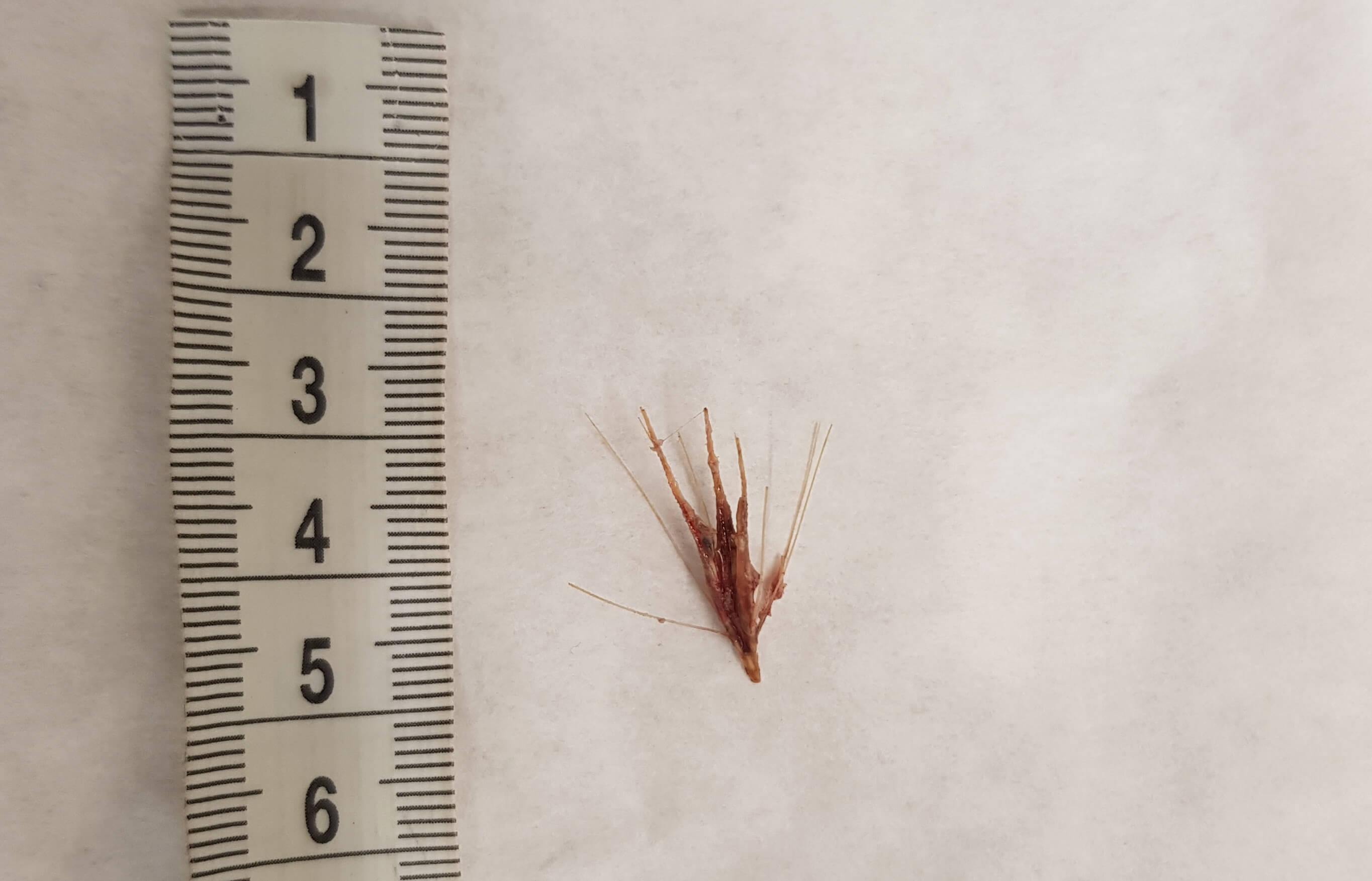
Summer is the main season for seeing grass seeds in dogs and the problems they cause. The two main areas that these pesky seeds affect are the feet and ears. However they can also affect their eyes and just about anywhere on the skin.
What dogs are affected?
All dogs can be affected. Grass seeds are found attached to the top of grass stems and are easily brushed off on a walk. The can easily get caught in the fur and lead to a variety of issues.
How can grass seeds cause an issue?
They may be small but they can cause pain for your dog. They have a pointed end and a barbed end. The pointed end is quite sharp and if burrowed down into the coat can push through and penetrate the skin causing discomfort and possible infection. In some cases they will burrow into and through the skin and may even travel to other areas of the body. If this happens they can be very hard to find or identify.


What signs will be seen with grass seeds in dogs?
The signs seen depend on where the grass seed is causing the problem. If the grass seed is down the ear, then your dog will shake their head or try to rub at their ear. If the grass seed is in the foot or skin, then they will be licking or chewing at the area and there may be a swelling and discharge present. When grass seeds get into the eyes there will be discomfort and your pets eye may be closed and be watery. Grass seeds in dogs eyes often cause ulcers on the cornea.
What is the treatment?
First of all the vet will remove the grass seed. Depending on where this is and your dogs temperament this may require sedation or anaesthesia. Often a long pair of specialised tweezers will be used called “crocodile forceps”. The hardest part can be locating the grass seed. Xrays will not help with because grass seeds are invisible on xrays. Sometimes they can be seen on ultrasound.
Once the seed is removed then the infection will require medication to treat as they will often cause an abscess to form. Your dog may require bandaging and/or a buster collar as well.
How can we prevent grass seeds in dogs?
Try to stay away from walking in fields with long grass as much as possible. Stick to areas where the grass has been cut short. It is best to keep excessive hair around the paws, ears and armpits trimmed on a regular basis. It is also important to check your after each walk for any grass seeds but also anything else untoward. Finally if you notice any signs that your dog may have a grass seed then get them in to a vet as soon as possible to avoid complications.
If you are worried your dog may have a grass seed problem then please call us on 01702 545558 to book an appointment today.
Another summer hazard is intestinal foreign bodies, to read about this click here.

